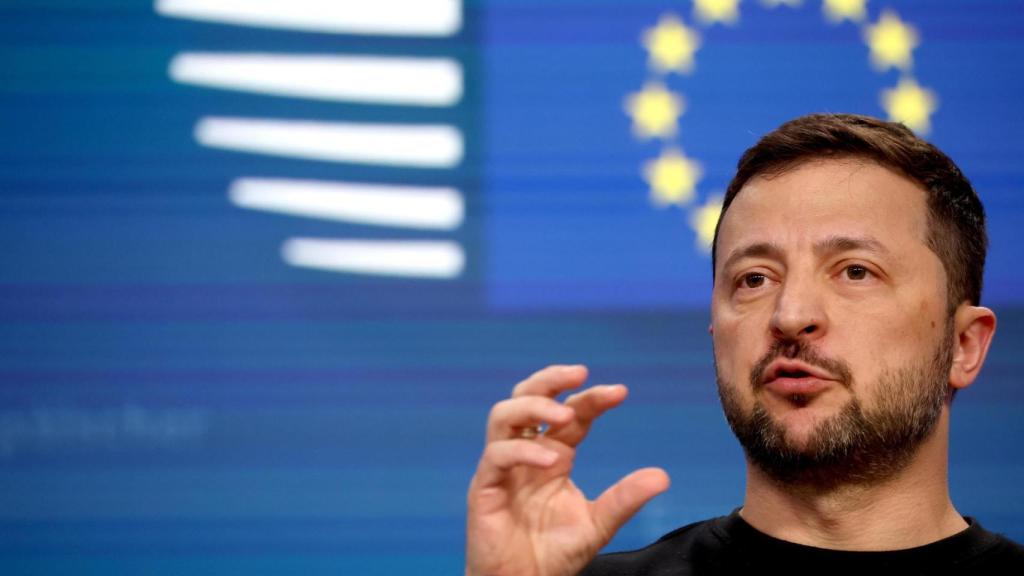That the aggressor pay for the damages caused. This is the spirit that has led the European Parliament to approve this Tuesday an exceptional loan to Ukraine of 35,000 million euros which will be returned with the benefits generated by the Russian assets immobilized since the start of the war almost 1,000 days ago. “It’s another historic step”said the president of the European Parliament, Roberta Metsola, after knowing the results of the vote: 518 votes in favor, 56 against and 61 abstentions.
This new macro-financial aid was announced by the President of the European Executive, Ursula von der Leyen, during her last visit to kyiv at the end of September and later approved by the Member States. The figure corresponds to the European Union quota of the credit of 45,000 million euros (50,000 million dollars, in reality) agreed upon by the G7 countries -the group of the seven richest democracies in the world- in June in southern Italy.
During that summit, after weeks of tug-of-war, it was reached a political agreement aimed at ensuring continuity of support for kyiv throughout 2025. Also at inflicting further damage on the Russian economy. Especially given the possibility that in 15 days, November 5Donald Trump wins the United States presidential elections and cuts off the flow of aid, as he has already announced he will do.
“With this mechanism, we reaffirm our permanent and robust support for Ukraine for as long as it takes and take an important step towards accountability on the part of Russia. It must pay for the damage it has caused,” said the commissioner. of Justice, Didier Reyndersduring his speech after the MEPs’ debate.
It is like this, an oxygen pump for Ukraine, which is preparing for a harsh winter (with energy infrastructure severely damaged by Russian attacks) and which is experiencing a complicated situation on the front. In recent weeks, Russian forces have advanced in several places in the Donetsk region of eastern Ukraine.

Ukrainian President Volodymyr Zelensky during a European Council summit in Brussels.
And while exhaustion begins to set in among Ukrainian troops, awaiting the arrival of more weapons from their allies, the Kremlin forces are preparing to receive the help of thousands of North Korean troops who could disembark on the battlefield next monthaccording to information handled by Ukrainian and South Korean intelligence.
All in all, this new package gives the Ukrainian Government leeway to use the money as it sees fit, whether for the reconstruction of the country, for military purposes or to stabilize its economy. The plan is for these flexible use funds to be available at the end of 2024 and go gradually disbursing throughout 2025.
Criticism of the ultras
When the EU governments gave the green light to this new loan, the president of the European Commission attacked harshly in the European Parliament the alignment of Hungarian Viktor Orbán – who has vetoed and conditioned aid to Kiev on several occasions – with the Russian president, Vladimir Putin, as Juan Sanhermelando explained in this newspaper.
Along these lines, in this Tuesday’s debate between MEPs the differences regarding the support for Ukraine of the different political families were clearly seen. Specifically, they have been far-right formations those who have harshly criticized the aid package during the discussion. On the one hand, the group’s MEPs Patriots for Europe (PfE) – born in the heat of Orbán’s Fidesz and the ultra-Czech (ANO2011) and Austrian (FPÖ) formations – have criticized aid to Ukraine, which they have called “corrupt country” and the “fascist” government.
In a more belligerent tone, the group Europe of Sovereign Nations (ESN) – led by the Alternative for Germany (AfD) ultras and with an openly pro-Putin stance – has accused the EU of “stealing” by using the benefits of frozen Russian assets. “Ada Laykova, from ESN.
Also from the same party, the Slovak Milan Uhrikhas criticized: “Explain to me what the Ukrainian Government is doing to defend European values: canceling elections, annulling the opposition, abolishing the rights of independent media…”
Estas declaraciones han destacado entre el apoyo generalizado de los partidos tradicionales: los socialdemócratas, populares, verdes y liberales. Algunos incluso han reclamado más ayuda para Ucrania. “Este paquete es poco; no es suficiente para que Ucrania gane la guerra. ¿Cuándo vamos a coger todos los activos congelados que tenemos?”, ha señalado el francés Raphaël Glucksmann, de S&D.
El eurodiputado socialista hacía así referencia a los cerca de 200.000 millones de euros del Banco Central de Rusia que la UE y los países del G7 tienen inmovilizados como parte de las sanciones económicas por la invasión a gran escala. La mayoría de estos activos (más de un 90%) se encuentran bloqueados en la empresa depositaria Euroclear, con sede en Bruselas.








![[Img #74161]](https://thelatestnews.world/wp-content/uploads/2024/10/Exploring-Codere-Key-Features-and-Highlights-150x150.jpg)





Add Comment